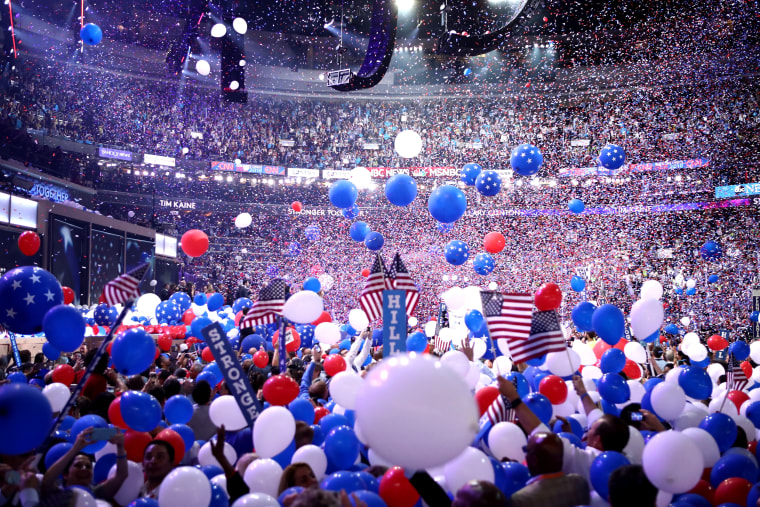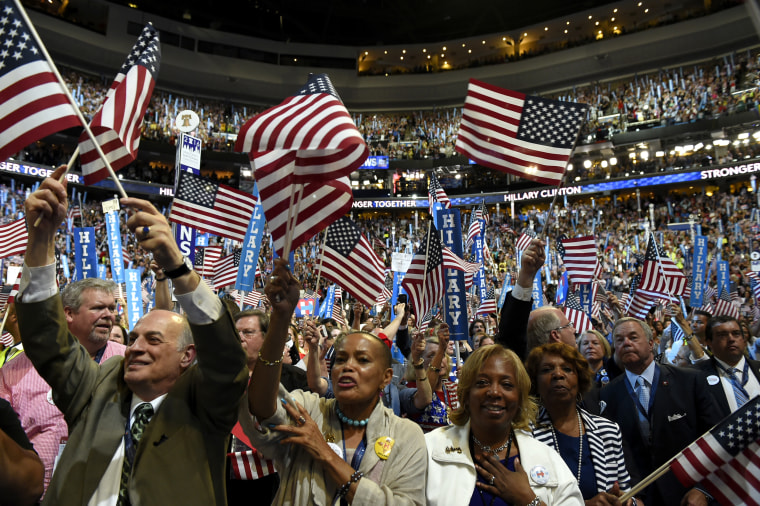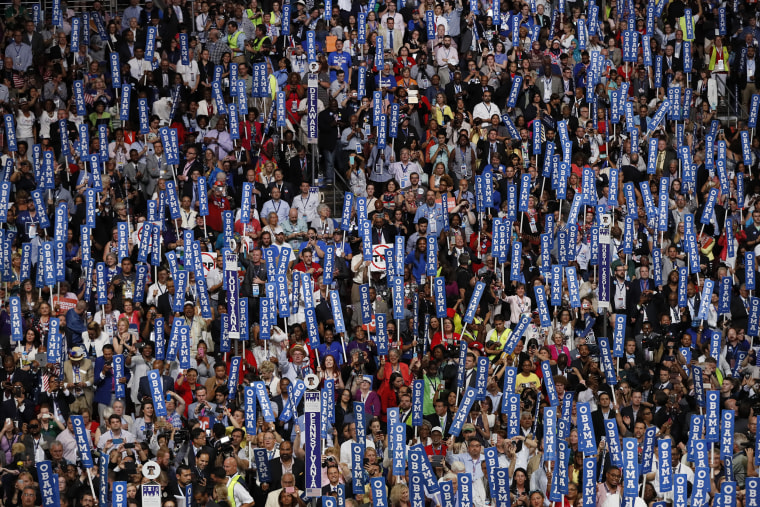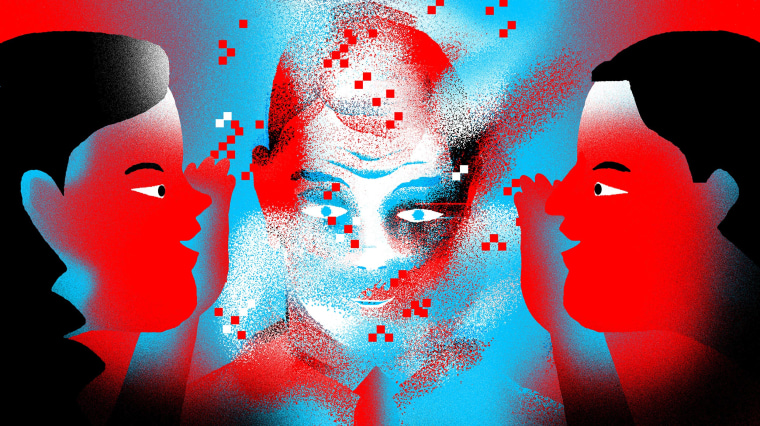WASHINGTON — Political conventions are billed as national election pep rallies, weeks of speeches and celebrations bringing together headliners to anoint the presidential nominees and broadcast into homes across America.
But backstage, when the conventions were held in arenas with stages, was always lobbyist territory.
The quadrennial gatherings may be the Super Bowl of lobbying. And this year, the absence of in-person conventions means the lobbyists have been effectively sidelined.
"It's one gigantic schmooze-fest," said Democratic former Rep. Jim Moran of Virginia, who works as a lobbyist after having served 24 years in Congress and has attended party conventions for more than three decades. "Lobbyists are going to save a lot of money, but they're going to lose an opportunity to have influence and socialize and meet a lot of people that you would not otherwise."
Like much of American life, Washington lobbying has been turned upside because of the coronavirus pandemic. And the conventions are no exception, leaving the influence industry to assess how it will operate when — and if — life returns to normal.

Lobbying is more than just cocktail parties; it's a multibillion-dollar industry.
Federal lobbyists reported spending $3.51 billion in 2019, their biggest year yet, according to the Center for Responsive Politics, a nonprofit that tracks the influence industry.
Much of the work of lobbying generally involves making the trek up Capitol Hill to meet with lawmakers and their staffs to explain a client's point of view. But with the halls of Congress closed, meetings have shifted to Zoom calls.
So with this year's conventions, lobbyists will be grappling not only with the inability to secure face time with decision makers but also with corporate clients who are trying to survive the pandemic-induced recession.
"Honestly, most lobbyists hate" the usual convention routine, said a Washington lobbyist who asked for anonymity to speak frankly about how the industry operates. "The idea that there is some lobbying benefit to wining and dining a bunch of delegates is just silly, especially in this day and age.
"Some of the first major budget cycles since COVID hit are coming up in the fall, and most will reset on January 1," the lobbyist said. "That is what most of us are thinking about right now."
'Social hubs'
Four years ago, Ron Bonjean was at the center of social activity at the Republican National Convention in Cleveland, helping organize a series of concerts for hundreds of attendees complete with specialty snacks and corporate sponsors.
This year, the bar his firm rented in Milwaukee for a speech after-party at the Democratic National Convention will sit empty Tuesday night. The bipartisan lobbying shop had planned to host an event next week at the Republican convention in Charlotte, North Carolina, but the pandemic hit before it could lock down a location.
Download the NBC News app for breaking news and politics
Conventions are like the end of summer camp for political types, the last hurrah before members of Congress and their consultants spread across the nation for the final push before the election.
"The conventions are the main social hubs for everyone — for lawmakers, for K Street, delegates — everyone gets a chance to see each other before they go off to campaign for the final couple months before the election," said Bonjean, a Republican strategist and partner at the bipartisan firm Rokk Solutions. "Washington is based on relationships, and that's really one of the last times you can really see people."
Lobbyists have largely already abandoned the type of lobbying that invokes images of smoky backrooms where lawmakers feast on expensive steaks and sip high-dollar whiskey. Disclosure rules and congressional ethics guidelines mean most lobbying events feature cocktails, food on a stick and no chairs.
But political conventions are prime real estate for the kind of lobbying events that comply with the myriad rules and allow attendees to avoid detailed disclosure.
Federal laws largely prohibit corporations from contributing money to political campaigns or parties. The two biggest exceptions are conventions and inaugurations, when companies are allowed to write checks or make in-kind contributions.

In 2016, Democrats raised $69.7 million for their convention and Republicans raised $65.7 million for theirs, according to disclosures filed with the Federal Election Commission.
In exchange for the donations, the parties offered sponsors perks like suites in the arenas where the acceptance speeches were given and backstage access for executives.
Conventions don't just bring together Washington types. Delegations are often composed of local and state government officials, making for prime opportunities for lobbyists to talk to decision-makers at every level of government.
Download the NBC News app for alerts and all the latest on the Democratic convention
The gatherings also mark when corporations tend to start thinking about what the future will look like if the out-of-power party wins. Former Vice President Joe Biden's large lead over President Donald Trump is fueling such speculation this year, several lobbyists said.
"The uncertainty of the election absolutely has kept a focus on contingency planning by companies and trade associations about what they need," Bonjean said.
The conventions offer opportunities for candidates further down the ballot to pick up donations from lobbyists and activists in other states.
"A convention is a large mass gathering where the entire political network of players gets together and members go not just to endorse the candidates but to, frankly, to meet people, to raise money, to gain further political support beyond their own congressional district and state," Moran said. "That's simply not going to happen, and I think the ramifications have yet to be figured out and obviously yet to be seen."
'Moneyball moment'
Just as the pandemic has made it nearly impossible for lobbyists to arrange face-to-face interactions, the economic fallout is making face time more imperative for companies.
And some lobbyists worry that if they can't do their jobs in a pandemic, companies assessing tight budgets will begin to question whether their services are needed when the crisis is over.
Full coverage of the coronavirus outbreak
Even as Congress has struggled to agree on unemployment payments and school funding, connected companies have largely been able to secure the assistance they wanted. Even lobbying shops were able to benefit from the Paycheck Protection Program.
"The need to have a strong presence in Washington right now during the pandemic is at a premium, because the major industries have been impacted and need to get to members to express different policy needs," Bonjean said.
Lobbyists largely agree that the Washington culture shift to accept Zoom calls in place of in-person meetings will remain. And some see an opportunity.

"The reality is traditional lobbying has long needed its 'Moneyball' moment," said Joe Brettell, a former congressional staffer who is now a Texas-based corporate consultant. "Firms who integrate into traditional relationship-based tactics with digital, media and online analytics will be able to create more value than ever while speaking the language so many of their clients are already using."

